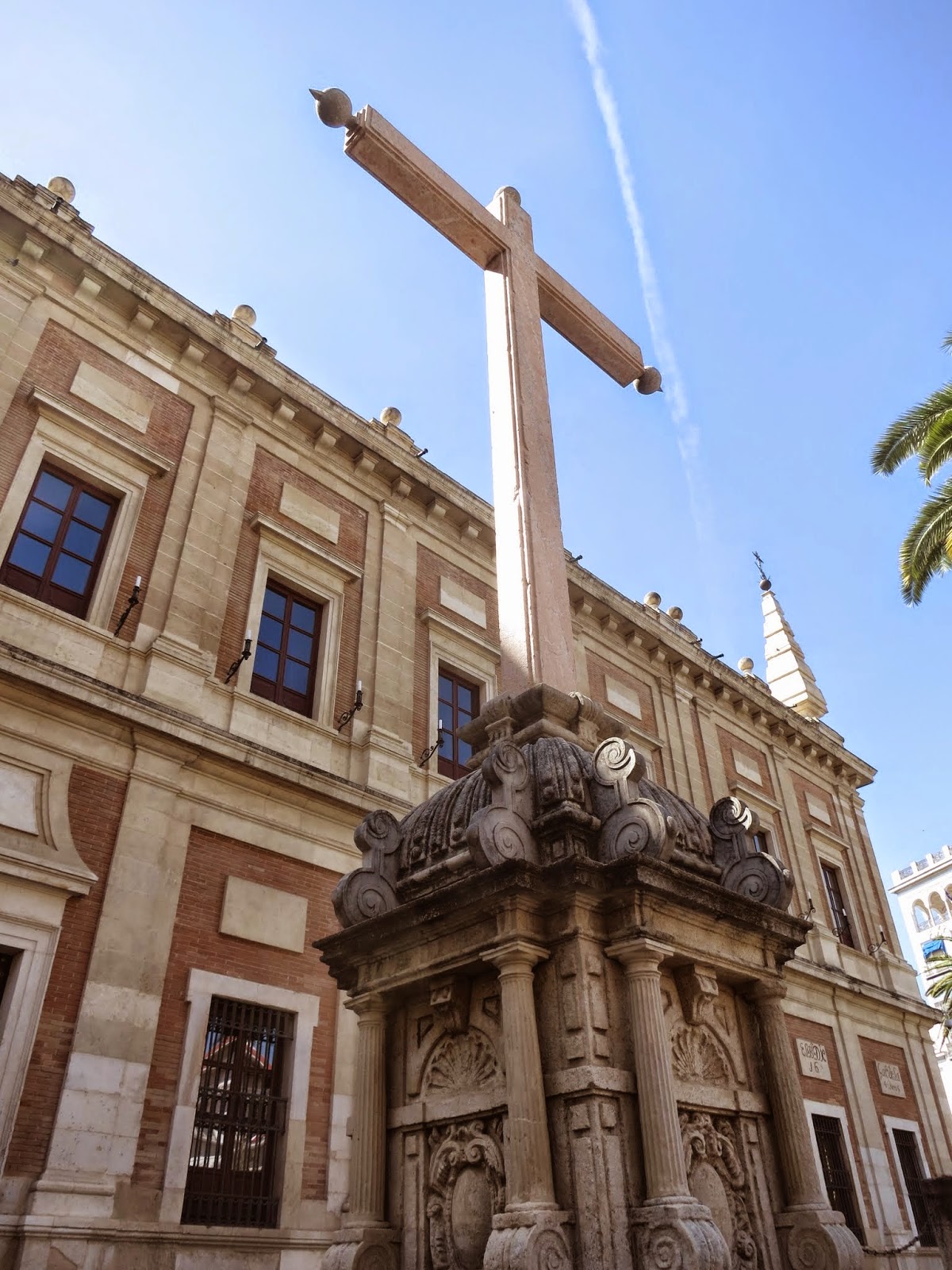The ´General Archive of
the Indies´ lies just opposite Seville Cathedral. On its steps you can
often find tired, sun burnt tourists
who probably don’t even take a second look at the building itself. It is
a shame as it holds many secrets from the golden age of Seville.
Originally
a merchant exchange, the Casa Lonja was constructed to control all the trade
that was in progression between Spain and the Americas. Later, when Seville’s
prime role in trading was taken over by Cadiz, the building also lost its function
and was, for a while, turned into flats.
At the end of the 18th century however the building, which was built in the Spanish renaissance-style, was transformed into the Archivo General de Indias and housed all the documents and contracts that were collected from the American colonies. We’re talking about 300 years of history here!
At the end of the 18th century however the building, which was built in the Spanish renaissance-style, was transformed into the Archivo General de Indias and housed all the documents and contracts that were collected from the American colonies. We’re talking about 300 years of history here!
If
you take a closer look, you can find amazing treasures, for example a request from ‘Miguel de
Cervantes' for an official post, the Bull of Demarcation Inter
caetera of Pope Alexander VI that divided the world between Spain and
Portugal, the journal of Christopher Columbus, maps and plans of the colonial
American cities, in addition to the ordinary archives that reveal the
month-to-month workings of the whole vast colonial machinery, which have been
mined by every Spanish historian in the last two centuries’ (Wikipedia). Copies of these documents are available to see for all who visit the
Archive.
In 2005 they started the digitization of all its
nine kilometers of shelves meaning that anybody from any point in the world can access its contents. It’s still in progress, which is quite understandable as they have to go through 15 million pages. What an amazing
project! Have a look here if you’re interested.















No comments:
Post a Comment